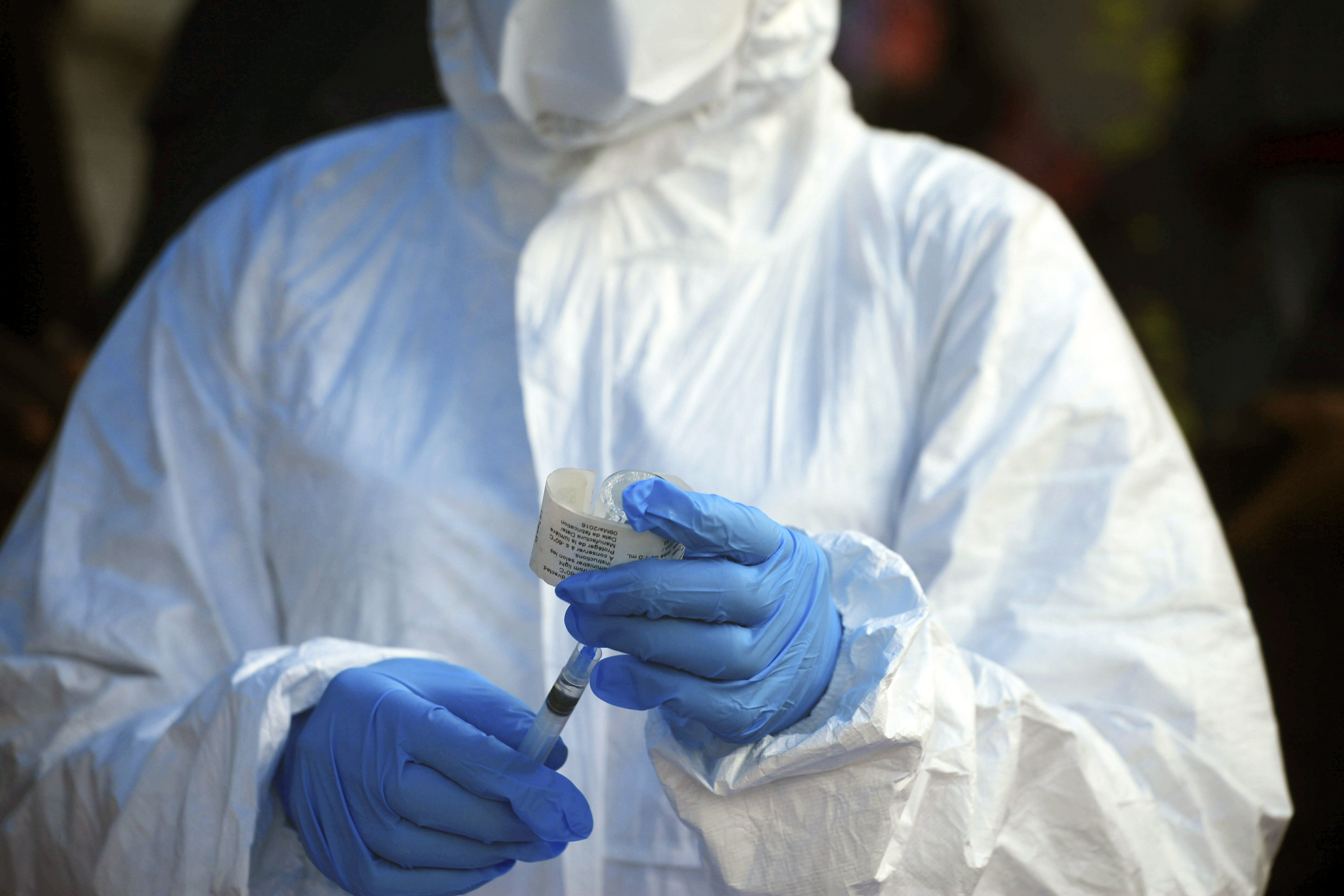
UN: Ebola increasing in Congo due to 'security challenges'
LONDON (AP) — The World Health Organization says Ebola has spiked in Congo in recent days because of “increased security challenges,” a week after its director-general predicted the outbreak might be contained within six months.
The U.N. health agency said in an update late Thursday the recent attacks on Ebola clinics slowed response efforts for days. Congolese officials reported dozens of new suspected and confirmed cases recently. Last week, WHO chief Tedros Adhanom Ghebreyesus declared the outbreak was “contracting” and praised the efforts to avert a larger crisis.
Tariq Riebl of the International Rescue Committee, who is currently working in Congo, had a starkly different perspective.
“I think all of us in the field are aware that we’re very far from being near the end of this outbreak,” he said. Riebl said the recent jump in cases also points to ongoing surveillance failures.
“The increase in cases also shows we are catching up with all the transmission that we haven’t previously been aware of,” he said.
In recent weeks, more than 40 percent of new cases in the hotspot towns of Katwa and Butembo had no known links to other cases, meaning doctors have lost track of where the virus is spreading.
WHO reported this week that many people with Ebola are refusing to seek care in health clinics and are dying at home, further increasing the chances of transmission, since the bodies of victims are highly contagious.
Outbreak responders have also been targeted by rebel attacks; Doctors Without Borders was forced to shut down two of its Ebola clinics in Eastern Congo after repeated attacks and has called conditions at the epicenter “toxic.” Eastern Congo is home to numerous armed groups and the Ebola epidemic has deepened the political and economic grievances of many in the area.
WHO teams often visit communities with a police escort for security reasons, a move that some think could undermine community trust.
“We understand why some people might be scared of this and we believe that the use of force should be a last resort,” Riebl said, adding that IRC doesn’t use armed escorts.
He noted that the outbreak would soon hit 1,000 cases; it is already the second deadliest Ebola outbreak in history. To date, there have been 915 confirmed cases, including 610 deaths.
“It’s a sad threshold to reach, but it should also be a time of reflection,” Riebl said. “We will not be able to stop this outbreak without local support.”
The Western Journal has not reviewed this Associated Press story prior to publication. Therefore, it may contain editorial bias or may in some other way not meet our normal editorial standards. It is provided to our readers as a service from The Western Journal.
Truth and Accuracy
We are committed to truth and accuracy in all of our journalism. Read our editorial standards.
Advertise with The Western Journal and reach millions of highly engaged readers, while supporting our work. Advertise Today.












